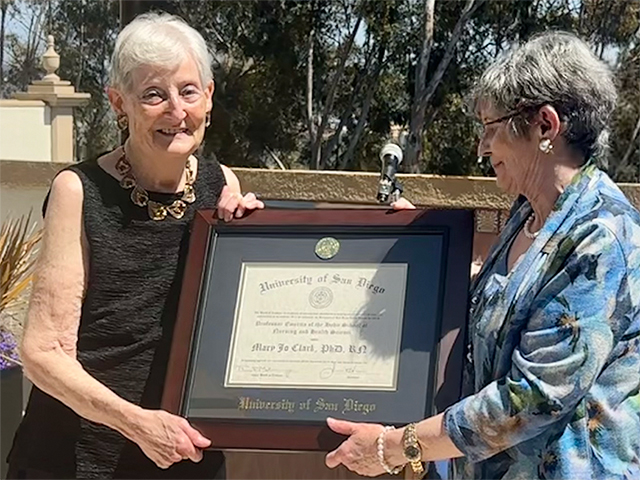Black History Month: USD Psychologist Addresses Mindfulness for Racial Healing

Written By: Shannon Franklin, PsyD, Staff Psychologist at USD
Dr. Franklin is a Black psychologist at the USD Counseling Center. Dr. Franklin actively works to dismantle systemic oppression and white supremacy both professionally and personally. Dr. Franklin is deeply committed to serving historically marginalized communities and has extensive experience providing mental health services to marginalized populations including ethnic minorities, the LGBTQ population, and those who identify as transgender and/or gender diverse.
A study by Watson-Singleton, Hill, and Case (2019) suggests that mindfulness practices have the ability to buffer the negative health consequences of past discrimination and race-related vigilance for African Americans. This research indicates that mindfulness can potentially mitigate the influence of past discrimination and race-related vigilance on Black college students’ health and that higher levels of mindfulness can be protective in the face of discrimination and race-related vigilance. Also, this research suggests that culturally tailored mindfulness may reduce depressive symptoms in African Americans. It seems that mindfulness can be a great tool for racial healing.
With this in mind engaging in culturally-congruent mindfulness can be a way to tend to our Black bodies and mind during this especially trying time. Often meditation has be borrowed, appropriated, and misshaped from various cultures. For Black folks it can be helpful to engage in mindfulness in a way that meets our specific needs and connects us to our past.
W.E.B. Du Bois coined the term Double Consciousness, a term describing the internal conflict experienced by subordinated groups in an oppressive society. The term originally referred to the psychological challenge of "always looking at one's self through the eyes" of a racist white society, and "measuring oneself by the means of a nation that looked back in contempt". The Black Conscious Community developed in South Africa during the apartheid began the Consciousness movement, challenging this way of self-reference. This community believes that Black liberation would not only come from imagining and fighting for structural political changes but also from psychological transformation in the minds of Black people themselves.
In the Black Conscious Community, there are 5 forms of meditation that can be used to develop African spirituality and healing: Healing, Awakening, Manifesting, Contemplating and Transcending. Below are some ways to practice each form of meditation.
Healing: Using self-compassion, self-love, and kindness to heal past hurts.
-
Body scan Meditation: Starting from your toes focus on getting in tune with and then relaxing each part of your body, spending extra time, care, and love with specifically Black features.
-
Gratitude: Think of someone who went out of their way to help you when they didn’t have to. Take a moment to experience their loving kindness. Meditate on their love and acceptance. Realize that they went out of their way to do something for you unconditionally.
Awakening: Spiritual awakening is coming into the knowledge of your body. This can be done by practicing observation of your thoughts. Try not to be pulled by thoughts, feelings, pain, fatigue, sounds or other distractions.
Manifesting: Imagining what you want to happen as if it already has. This is often used in sports psychologist. Visualize a goal you are hoping to achieve. Try to be as descriptive as possible when engaging in this visualization, play close attention to all five sense.
Contemplating: Focusing on a topic with your eternal eye rather than your thoughts with intention and devotion.
-
Meditate on scripture or statement: You can focus on the imagery of the words, the underlying meaning of the words, the sound of the words, or on the way the words make you feel. This is different from awakening where you observe your thoughts without attachment. Here you actively observe your thoughts, feelings, and pains in your body.
-
Meditate on a word that described Blackness: Notice how your feel physically and emotionally afterwards.
Transcending: Meditate to overcome the limitations of your mind and body. This type of meditation can help with physically pain management or managing strong emotions. When experiencing an intense feeling focus on the sensations in your body and try to play with them, see if you can move the pain to a different part of your body. See if you can turn the pain sensation into heat, tingles, or vibrations. You can also focus on the sensation of strength and see if you can make this sensation louder than the pain.
If you are a Black-identified student and are looking for more mental health support I encourage you to check out Empowered at USD, a support group sponsored by the USD Counseling Center. This space, which is led by a Black therapist, will create opportunities to actively foster self and community care, discuss health equity concerns, and connect over the experience of attending a PWI. Together we will work towards cultivating Black joy, learning strategies for wellbeing, increase mindfulness for racial healing, and identify ways to care for our community. For more information contact Dr. Shannon Franklin at sfranklin@sandiego.edu.
Contact:
Campus Recreation
campusrecreation@sandiego.edu
(619) 260-4533



